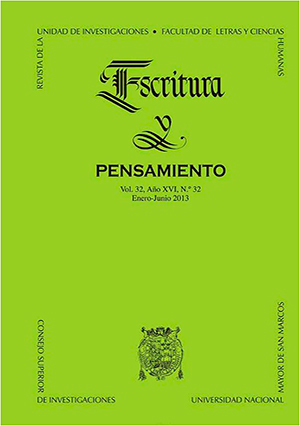VOICE AND LETTERS IN CONFLICT. SOME PROBLEMS OF INTERCULTURAL PROBLEMS IN TRANSLATION
DOI:
https://doi.org/10.15381/escrypensam.v16i32.8017Keywords:
Quechua literature, Orality, Translation, Intercultural traductibility.Abstract
Any compendium of linguistic expression that is passed into writing is faced with the kind of problem that is related to its oral nature since this cannot be verified in the same manner, also there is the problem of the constantly changing nature of such expression. As well as the problem of oral speech there is another that has to do with the translation and even the very possibility of translation, something that is very clear when one looks at texts written in Quechua for example. When the translators manipulate a story ideologically they not only alter the system of the original language but even its basic symbols and sometimes they even end up repressing the Quechua text in its direct forms of representation and finally lose sight of a cosmovision that they will find difficult to recover.Downloads
Published
Issue
Section
License
AUTHORS RETAIN THEIR RIGHTS:
a. The authors retain their trademark and patent rights, and also over any process or procedure described in the article.
b. The authors retain the right to share, copy, distribute, execute and publicly communicate the article published in the Escritura y Pensamiento (for example, place it in an institutional repository or publish as part a book), with acknowledgment of its initial publication by Escritura y Pensamiento.
c. Authors retain the right to make a subsequent publication of their work, to use the article or any part of it (for example: a compilation of their work, lecture notes, thesis, or for a book), provided that they indicate the source of publication (authors of the work, journal, volume, number and date).





